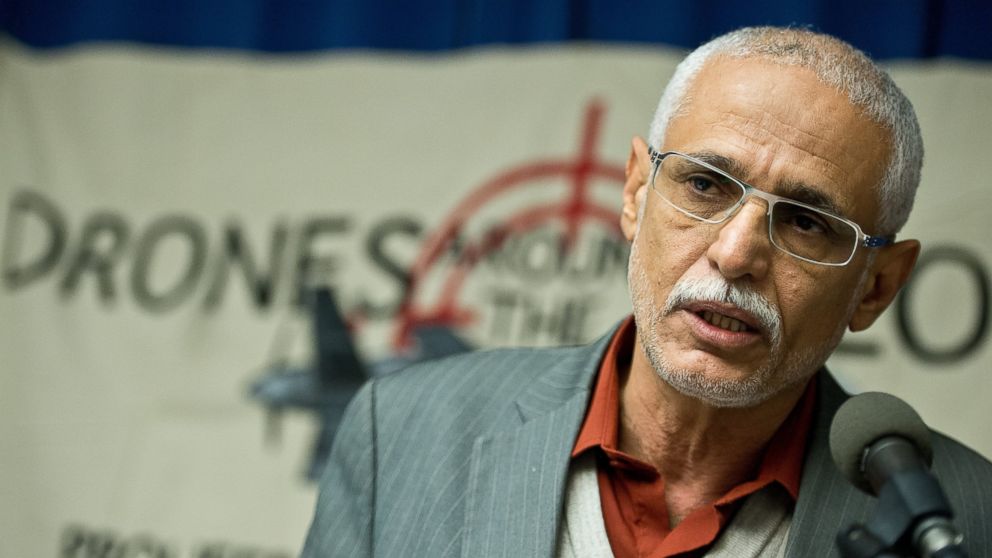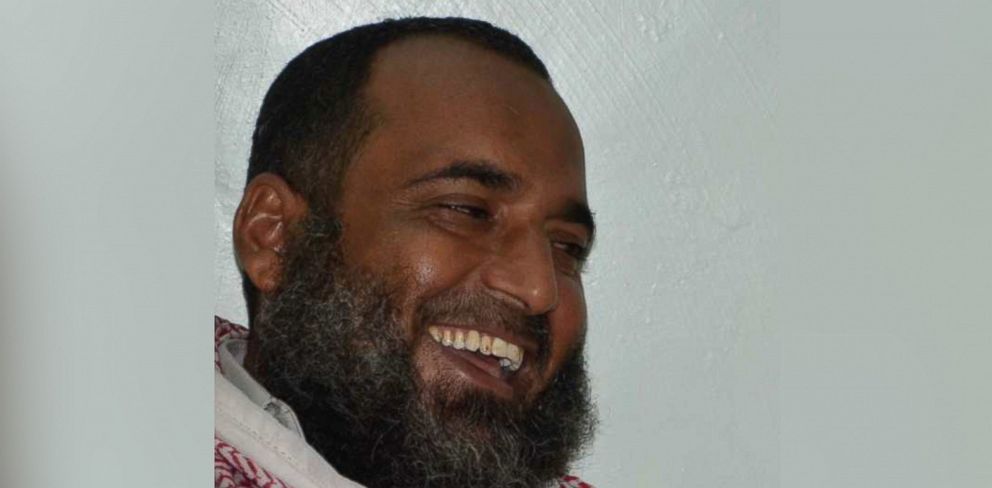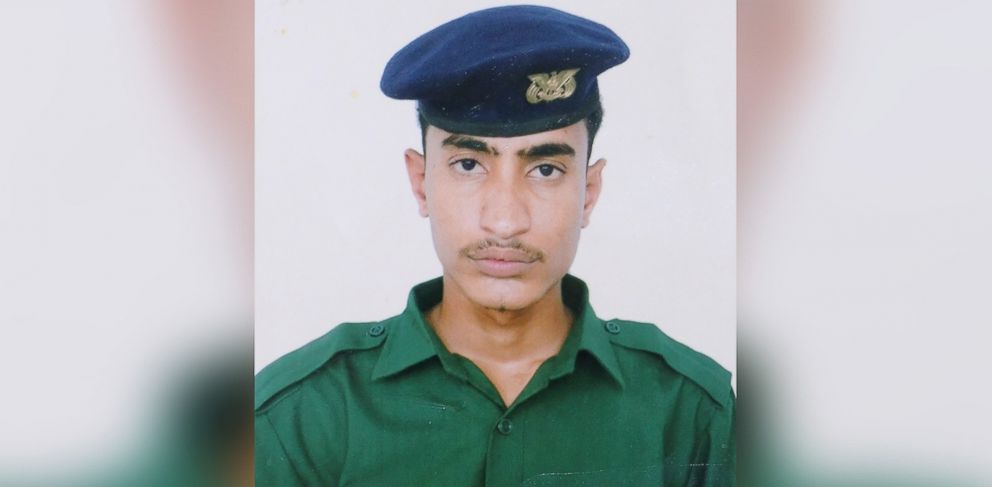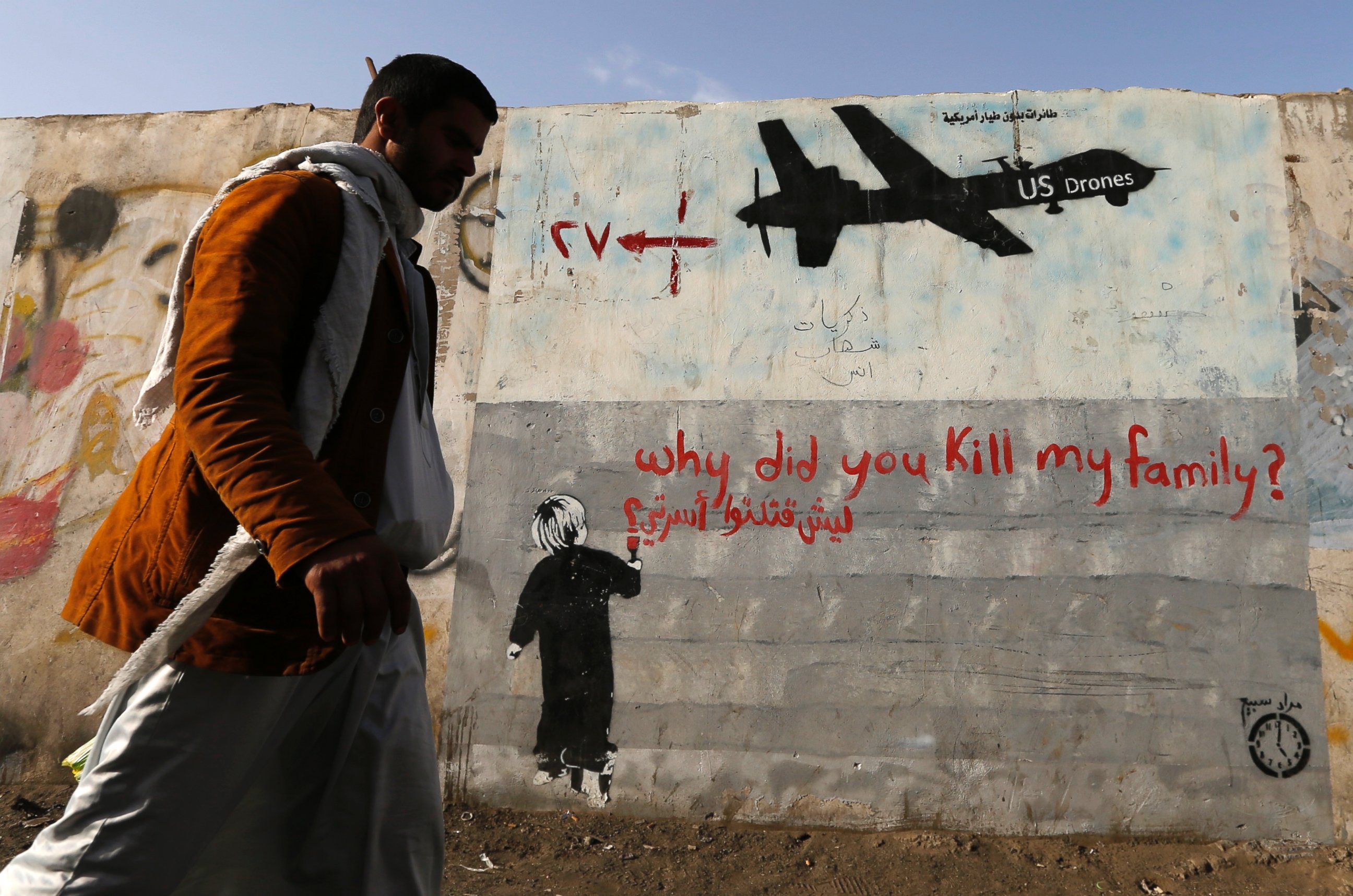Man Who Says Relatives Were Killed by US Drone Strike Heads to Federal Court
President Obama has been criticized by human rights groups over drones.

— -- Faisal bin Ali Jaber, a Yemeni man who claims he lost members of his family in a U.S. drone strike, was set to attend a U.S. appellate court hearing today regarding the alleged incident in what could become a landmark case.
Jaber, an engineer, spoke to ABC News about the alleged drone strike, which he says took place on Aug. 29, 2012, in the village of Khashamir in Yemen, killing his brother-in-law Salem and his nephew Waleed. “I hated life. I felt that life wasn’t worth anything. I stopped being able to go to work," he said. "I saw no more meaning to life.”
Jaber, who is represented by Reprieve, an international human rights organization, is asking the court to declare that the strike was unlawful. Jaber says that his relatives were innocent victims of a drone strike whose target was three other men who had approached Salem for a meeting. Though he met with members of Congress and Obama administration officials in 2013, Jaber says they didn't offer an explanation or apology for the strike that killed his family members. He told ABC News that he now hopes to secure an apology from President Obama himself for the deaths.
The White House's National Security Council declined to comment on the ongoing case.
In February, a district court dismissed Jaber’s case against the United States, citing the “political question doctrine.” The court agreed with the defendants that courts are prevented from passing judgment on decisions made by other political branches of government, including the White House.
The court said that Jaber's case raised "non-justiciable political questions," ones that courts were "ill-equipped to answer.”
Jaber and his lawyers argue that the killing of Salem and Waleed violated international law. They replied to the decision by claiming that the political question doctrine isn't applicable in this instance because "the political branches do not have untrammeled discretion to commit war crimes."
Today's U.S. appellate hearing will be the first such case brought by an alleged civilian victim of the U.S. covert drone program.

Jaber offered ABC News chilling details of the alleged drone strike: He says that his entire village was disturbed by the sound of the blast that day.
"It was something impossible to imagine for a person," he said. "I stood on body parts of people. The smell was very strange. I don’t know what was mixed with what -- blood, mixed with the smell of ammunition. I think I lost consciousness, I imagined that nothing had happened and went back to smiling."
In court documents filed Nov. 4, Jaber and his lawyers write that Jaber's family members were "righteous advocates for peace" who posed no threat to the United States and say that Jaber and his family are owed the same acknowledgment that Obama and the U.S. government gave to the families of 73-year-old Dr. Warren Weinstein and 37-year-old Giovanni Lo Porto, an American and Italian killed in a U.S. drone strike in Pakistan in January 2015.
"For four long years, Faisal bin Ali Jaber and his family in Yemen have been fighting for answers as to why Salem and Waleed -- righteous advocates for peace -- were killed by a U.S. drone. They are fighting for the same acknowledgment that Appellees [the United States of America] freely gave to the families of an American and an Italian also killed by a drone: they had a right to life, and that right was violated by a U.S. drone strike," the document states.

Obama has been repeatedly criticized by peace advocates and human rights organizations over the use of drone strikes in countries like Yemen, where the United States has never approved military action through Congress.
In July, the White House announced that 64 to 116 civilians had died from U.S. airstrikes outside "areas of active hostilities" during Obama's term, but it is unknown whether Jaber's family members were part of that official tally because the names of victims were not included in the report.
In addition to the statistics released in July, which were criticized by Reprieve and other groups for failing to disclose specific details regarding the methodology used to obtain them, the administration issued an executive order calling on the Office of the Director of National Intelligence to publish annual reports on civilian and combatant casualties resulting from counterterrorism operations in nations where Congress has not approved military action, as well as a mandate for increased training of the military personnel involved in such operations and other policies, in an effort to reduce civilian casualties.It is unclear whether President-elect Donald Trump will abide by Obama's executive order once he takes office.
The announcement in July followed pressure placed on the administration from a number of organizations, including the ACLU, which has filed a series of Freedom of Information Act lawsuits in an effort to learn more about the Obama administration's secretive drone program.
Jameel Jaffer, deputy legal director of the ACLU, told ABC News in July that the organization sought to remove the layer of secrecy that covers the subject of drone strikes, which are a major part of Obama's foreign policy legacy.
"President Obama has claimed very broad power to use lethal force on the battlefield and off regarding these strikes," Jaffer said, referring to the fact that Congress has not formally authorized military operations in many of the countries where drone strikes are conducted. "Now the precedent created by his policies will be in the hands of another president and another president after that."
The administration said in July that the strikes were "consistent with our values and all applicable law" and that the program has "resulted in extraordinarily precise targeting."
Dave Deptula, a retired three-star general who served as the senior Air Force official in charge of policy guidance and direction of that service branch's drone program from 2006 to 2010, told ABC News in July that he believes criticism of drones stems from a misunderstanding of what they are and how they work. Deptula accused the media of creating a culture of "negativism" around drone strikes, saying that they are more precise and lead to fewer casualties than conventional weaponry.

But critics, including Jaber and Reprieve, complain of a lack of transparency surrounding the drone program.
Jaber claims that his relatives were given, through the Yemeni government, a bag containing $100,000 in U.S. currency in 2014 as compensation for the killing. But Jaber told ABC News that the U.S. has never acknowledged that it provided the money to his family.
Jaber said that an acknowledgment of responsibility for the deaths of his brother-in-law and nephew on part of the United States is more important to him than money. “Instead of paying money in a secret way, the U.S. could announce a project in his name carried out by members of civil society in support of the village that was hit,” he said, adding that creating educational projects in the village could also help prevent young people from joining terrorist groups such as al-Qaida.
He said that his late brother-in-law advocated to change people's minds about terrorism. “What was characteristic for Salem was that he believed strongly in fighting terrorism in a peaceful way and in changing that way of thinking. He was very brave," he said.
"We expected he would be killed by al-Qaida but, at the end, he died from an American strike.”




